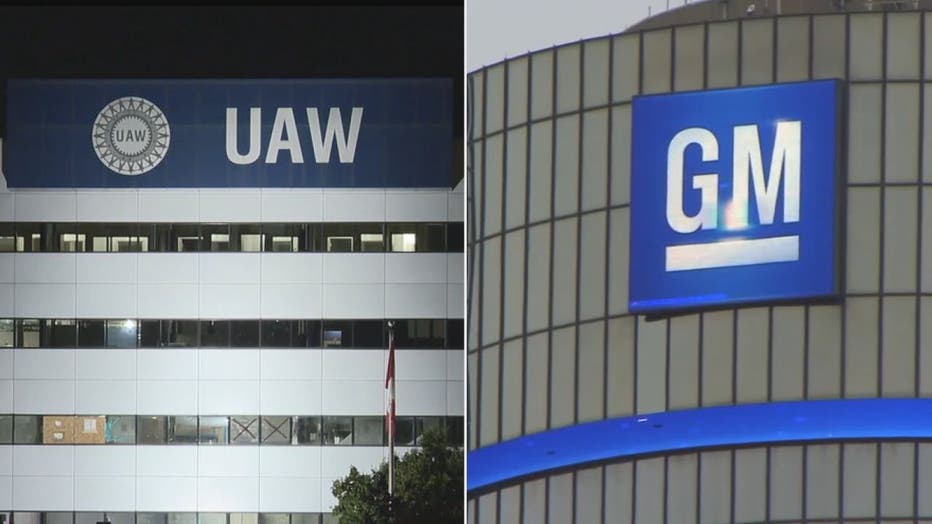General Motors reinstating health care for striking workers
(FOX 2) - General Motors announced Thursday, on day 11 of the UAW strike, that it's reinstating healthcare for its striking workers.
One of the main sticking points in the UAW-GM negotiations is health care. GM is looking to cut its costs, but workers argued they shouldn't have to pay more because the company is making billions in profits. Union workers pay about 4% of their health care costs, but employees of large companies in the U.S. pay an average of 34%, according to the Kaiser Family Foundation.

GM reinstates health care for striking workers
As the UAW strike against General Motors reached day eleven, striking workers received word that they will now once again have health coverage, even while on strike.
Two days after the strike began, General Motors opted to stop paying for the striking workers' health care, saying the UAW should pick up the tab.
It's standard procedure for health care costs to shift to the union in a strike, though many said it was a move that was unfair leverage for negotiations. The United Auto Workers' website said the union would pick up the cost of premiums.
On Thursday, General Motors said it's going to continue providing coverage "due to significant confusion among members."
"GM is very concerned about the significant confusion caused around our employee’s health care coverage. Throughout this negotiation, GM has said that our number one focus was on the well-being of our employees. That remains the case today.
Given this confusion, GM has chosen to work with our providers to keep all benefits fully in place for striking hourly employees, so they have no disruption to their medical care, including vision, prescription, and dental coverage.
In a letter by the UAW Vice President, GM first said the UAW should pay for health care through COBRA and from the UAW's strike fund. That was on day two of the strike.
Despite GM reversing course, the UAW fired off this letter to its members:
If they have an insurance claim, they should submit it. GM will continue to provide them the coverage they rely on given the circumstances."

Just yesterday, news broke that a proposal is now at the main table at General Motors and the UAW is awaiting their response.
Not much is publicly known, but the letter means the next phase of negotiations is beginning.
Workers voted to strike on September 15, shutting down more than 50 GM plants across the United States, putting 49,000 workers out of work and on the picket line.
By day three, GM said it was losing $50 million per day as the plants were closed.

